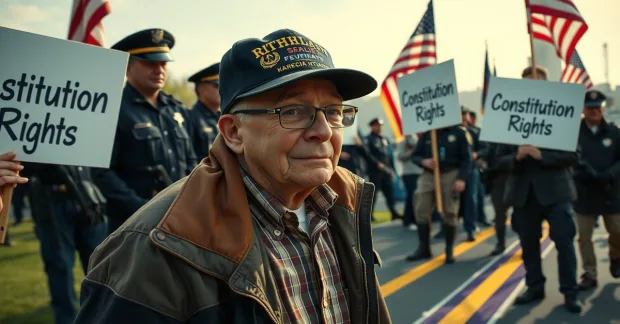
Influencer marketing has exploded in popularity in recent years, with brands partnering with social media stars to promote their products or services. However, not all sponsored posts go as planned. Some influencers have found themselves in legal trouble due to misleading content, false claims, or failure to disclose relationships with brands. These lawsuits serve as a warning to influencers to carefully consider the content they put out and the partnerships they engage in.
Key Takeaways:
- Transparency is crucial: Influencers must clearly disclose any sponsored content to maintain transparency with their audience and avoid potential lawsuits.
- Follow FTC guidelines: Adhering to the Federal Trade Commission guidelines on influencer marketing can help prevent any legal issues related to sponsored posts.
- Avoid deceptive practices: Influencers should not engage in deceptive marketing practices, such as making false claims about a product or service.
- Understand contractual obligations: It is important for influencers to thoroughly review and understand the terms of their contracts with brands to avoid legal disputes.
- Seek legal advice: In case of any uncertainty regarding sponsored posts or potential legal issues, influencers should seek advice from legal professionals familiar with influencer marketing laws.
- Monitor content closely: Influencers should regularly monitor their content to ensure that all sponsored posts are appropriately labeled and comply with relevant regulations.
- Be honest and authentic: Building trust with followers by being honest, transparent, and authentic can help influencers maintain a positive reputation and avoid legal troubles related to sponsored content.

The Legal Landscape of Influencer Marketing
Understanding FTC Guidelines
For influencers entering into the world of sponsored posts, understanding the Federal Trade Commission (FTC) guidelines is crucial. The FTC requires influencers to disclose any paid partnerships or endorsements in a clear and conspicuous manner. Failure to do so can result in hefty fines and damage to an influencer’s credibility. It’s important for influencers to follow the FTC guidelines to maintain transparency with their audience and avoid potential legal consequences.
Contract Law and Influencer Agreements
Agreements between influencers and brands play a significant role in influencer marketing. These contracts outline the terms of the partnership, including the scope of work, compensation, and disclosure requirements. Having a clear and comprehensive influencer agreement can help prevent misunderstandings and disputes between parties.
Guidelines: When drafting influencer agreements, it’s crucial to clearly define the deliverables, payment terms, and intellectual property rights. Including clauses related to exclusivity, termination, and dispute resolution can also provide added protection for both parties involved.
Common Legal Issues in Influencer Sponsorships
Disclosure Failures and Misleading Advertising
Now, one of the most common legal issues in influencer sponsorships is the failure to disclose material connections between influencers and brands, leading to misleading advertising. The Federal Trade Commission (FTC) requires influencers to clearly disclose any financial or material relationship they have with a brand when promoting products or services. Failure to do so can result in serious consequences, including fines and legal action.
Intellectual Property Infringements in Sponsored Content
On the other hand, intellectual property infringements in sponsored content can also pose significant legal risks for influencers. Using copyrighted material without proper authorization, such as images, music, or logos, can lead to allegations of infringement and potential lawsuits from the rightful owners. It is crucial for influencers to obtain the necessary permissions and licenses to avoid legal issues related to intellectual property rights.
The unauthorized use of intellectual property in sponsored content can result in costly legal battles and reputational damage for influencers. It is vital for influencers to respect intellectual property rights and ensure that they have the appropriate permissions to use any third-party content in their sponsored posts.
Sponsorships are a valuable and effective marketing strategy for brands looking to reach new audiences through influencer partnerships. However, influencers must navigate the legal landscape carefully to avoid running into legal troubles. By proactively disclosing sponsorships and obtaining permissions for copyrighted material, influencers can protect themselves from legal risks and maintain a positive reputation in the industry.
Liability in the Chain of Influence
Influencers’ Responsibility
To Influence a large number of followers comes with great responsibility. Influencers have a duty to their audience to be transparent about sponsored content and partnerships. Failure to disclose paid relationships can lead to legal consequences and damage to the influencer’s credibility. Additionally, influencers must ensure that the products or services they promote are in line with industry regulations and do not make false claims.
Brands’ Accountability
Brands must also shoulder accountability in the chain of influence. When partnering with influencers, brands need to ensure that the influencer complies with advertising standards and accurately represents the product or service. Brands could be held liable for any misleading information or deceptive practices carried out by the influencer on their behalf. It is crucial for brands to vet influencers carefully and provide clear guidelines for sponsored posts to mitigate legal risks.
This dual responsibility emphasizes the need for open communication and transparency between influencers and brands. By fostering a relationship built on honesty and integrity, both parties can minimize the potential for lawsuits and maintain a positive reputation in the industry.
Protecting Both Parties
Best Practices for Influencers
With the rise of influencer lawsuits stemming from sponsored posts, it is crucial for influencers to protect themselves and their brand partnerships. The first step is to clearly disclose any sponsored content by using hashtags like #ad or #sponsored. Transparency is key to building trust with your audience and complying with advertising regulations. Additionally, it’s important for influencers to only promote products or services that align with their values and will genuinely resonate with their followers. Engaging with your audience authentically and providing honest reviews can help maintain credibility and avoid legal issues.
Best Practices for Brands
Best practices for brands working with influencers include ensuring clear communication and written agreements outlining expectations and deliverables. Brands should conduct due diligence in selecting influencers to partner with, considering factors such as their content quality, engagement rate, and audience demographic. Monitoring sponsored content to verify compliance with advertising guidelines is vital, as brands can also be held liable for misleading or deceptive posts.
To protect both parties involved in influencer partnerships, brands should also consider the reputation and values of the influencers they collaborate with. Aligning with influencers who uphold ethical standards and have a history of transparent communication can help mitigate risks and maintain a positive brand image. Choosing to work with reputable influencers can lead to successful collaborations and long-term partnerships.
High-Profile Influencer Lawsuit Examples
Despite the glamorous facade of sponsored content on social media, influencer lawsuits have become more common as the industry matures. High-profile influencers have found themselves embroiled in legal battles due to various issues related to sponsored posts. These lawsuits serve as cautionary tales for both influencers and brands about the legal consequences of misleading or undisclosed advertising.
Analysis of Legal Action
Action taken in these cases typically revolves around consumer protection laws and Federal Trade Commission (FTC) guidelines regarding transparency in advertising. In many instances, influencers have faced legal repercussions for not clearly disclosing their relationships with brands or for making false claims about products or services. As a result, influencers have been forced to settle cases, pay fines, or even permanently alter their content creation practices.
Lessons Learned and Industry Impact
Impact of these lawsuits has reshaped the influencer marketing landscape, leading to more stringent guidelines and regulations. The FTC has ramped up enforcement and issued clearer directives for influencers to follow, emphasizing the importance of disclosure and transparency. Brands, too, have become more cautious about their partnerships, ensuring that influencers understand and comply with legal obligations to avoid costly litigations.
The evolution of influencer lawsuits and regulations underscores the growing need for ethical and compliant practices within the industry. The long-term impact is a shift towards greater transparency and accountability in influencer marketing, benefitting both consumers and stakeholders in the long run.
Navigating Disputes and Settlements
After an influencer and brand partnership turns sour, disputes can arise over various issues. From disagreements over content creation to allegations of breach of contract, navigating these disputes requires a strategic approach to resolve conflicts efficiently and effectively.
Conflict Resolution Strategies
Settlements can be a powerful tool in resolving influencer lawsuits stemming from sponsored posts. When both parties are open to negotiation, reaching a settlement can save time and money compared to protracted litigation battles. By coming to an agreement outside of court, influencers and brands can often maintain better relationships and reputations in the industry.
The Role of Mediation and Arbitration
On the path to resolving influencer lawsuits, mediation and arbitration can offer alternative dispute resolution methods that avoid the public scrutiny of a trial. Mediation involves a neutral third party facilitating discussions between the conflicting parties to reach a mutually acceptable resolution. Arbitration consists of a private adjudicator rendering a decision after considering evidence and arguments from both sides.
While mediation encourages collaboration and communication to find a middle ground, arbitration functions more like a streamlined trial with a binding decision at the end. Both methods can provide efficient ways to settle influencer disputes while maintaining a degree of control over the outcome.
The Future of Influencer Marketing Law
Emerging Trends and Legislative Changes
Not keeping up with the rapidly evolving landscape of influencer marketing law can be a costly mistake for both brands and influencers. As the industry faces increasing scrutiny from regulators and consumers, it is necessary to stay informed about the latest trends and legislative changes.
Predictions and Precautions
Changes in influencer marketing law are inevitable as the industry matures and faces more scrutiny. Brands and influencers must adapt to these changes by being transparent and compliant with relevant regulations. Failure to do so could result in legal consequences, damage to reputation, and loss of trust from followers.
Legislative changes in influencer marketing are expected to focus on increasing transparency, disclosure requirements, and authenticity standards. It is crucial for influencers and brands to stay informed about these changes and proactively adjust their practices to ensure compliance and maintain credibility in the eyes of both consumers and regulators.
Summing up
Taking this into account, it is evident that influencer lawsuits involving sponsored posts have grown in frequency due to the lack of transparency and disclosure in these marketing practices. The Federal Trade Commission (FTC) has taken a proactive stance in enforcing guidelines to protect consumers from deceptive advertising by influencers, emphasizing the importance of clearly disclosing sponsored content.
As influencers continue to play a significant role in shaping consumer behavior and influence purchasing decisions, it is crucial for them to adhere to ethical practices and regulations set in place to maintain the trust and credibility of their audience. By being transparent and honest about sponsored collaborations, influencers can avoid the legal repercussions that arise when sponsored posts go wrong, ultimately fostering a more authentic and trustworthy relationship with their followers.
FAQ
Q: What are Influencer Lawsuits related to Sponsored Posts?
A: Influencer lawsuits related to sponsored posts are legal actions taken against social media influencers for misleading or deceptive advertising practices in their sponsored content.
Q: What are some common reasons for Influencer Lawsuits?
A: Some common reasons for influencer lawsuits include failure to disclose sponsored content, promoting faulty or harmful products, and making false claims about products or services.
Q: How can social media influencers protect themselves from lawsuits?
A: Social media influencers can protect themselves from lawsuits by clearly disclosing sponsored content, thoroughly vetting products or services before promoting them, and avoiding false or misleading statements in their posts.
Q: What legal implications do influencers face for not disclosing sponsored content?
A: Influencers who do not disclose sponsored content can face legal repercussions from government regulatory bodies, such as fines or penalties for deceptive advertising practices.
Q: Can influencers be held liable for the products or services they promote in sponsored posts?
A: Yes, influencers can be held liable for the products or services they promote in sponsored posts if the products are faulty, harmful, or if the influencers make false claims about them.
Q: What should influencers do if they are facing a lawsuit related to their sponsored posts?
A: If influencers are facing a lawsuit related to their sponsored posts, they should seek legal counsel immediately, gather evidence to support their case, and cooperate with the legal process to resolve the issue promptly.
Q: How can brands ensure compliance with advertising regulations when working with influencers?
A: Brands can ensure compliance with advertising regulations when working with influencers by providing clear guidelines on disclosure requirements, vetting influencers before partnering with them, and monitoring sponsored content to ensure it meets legal standards.




















